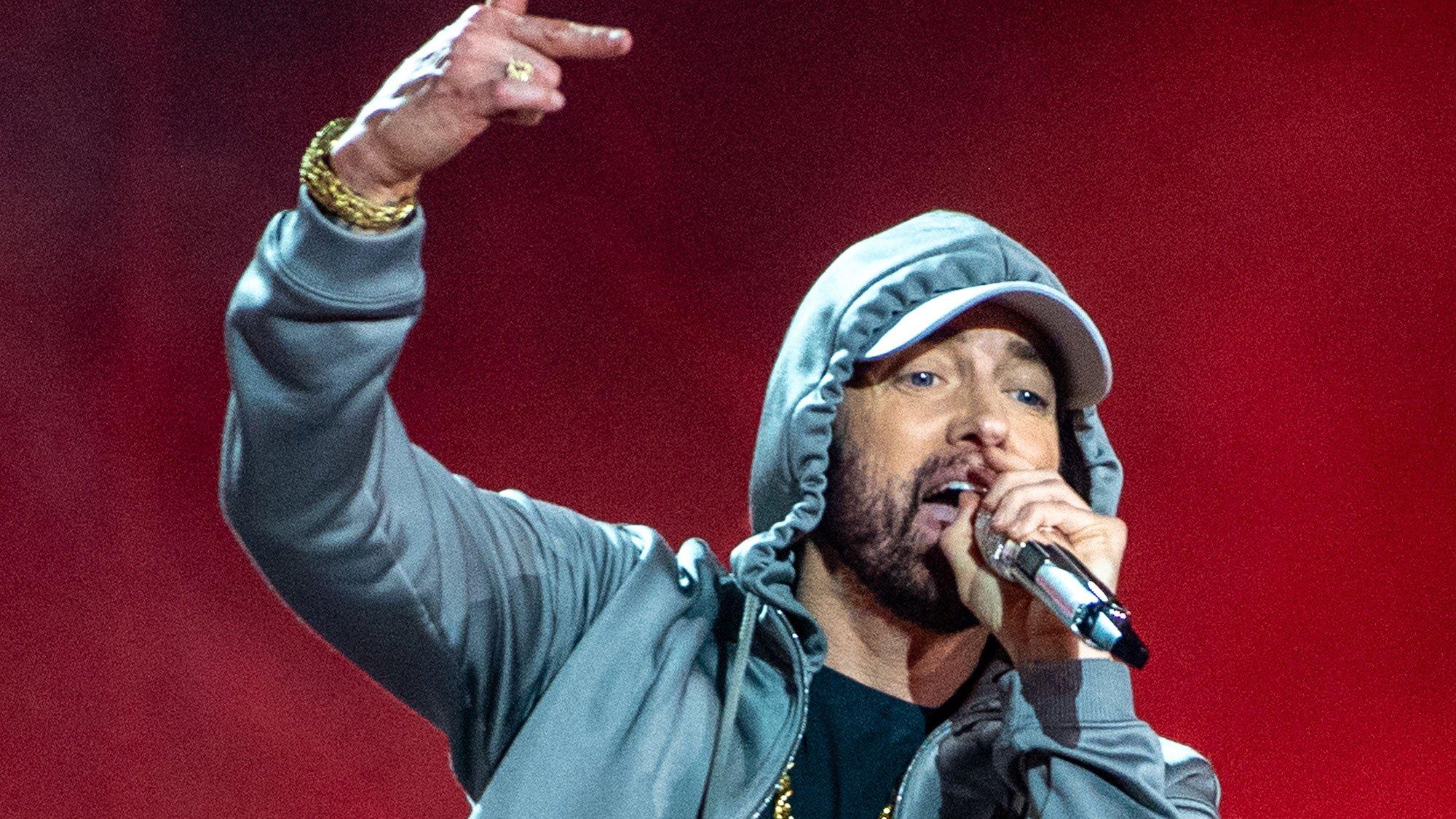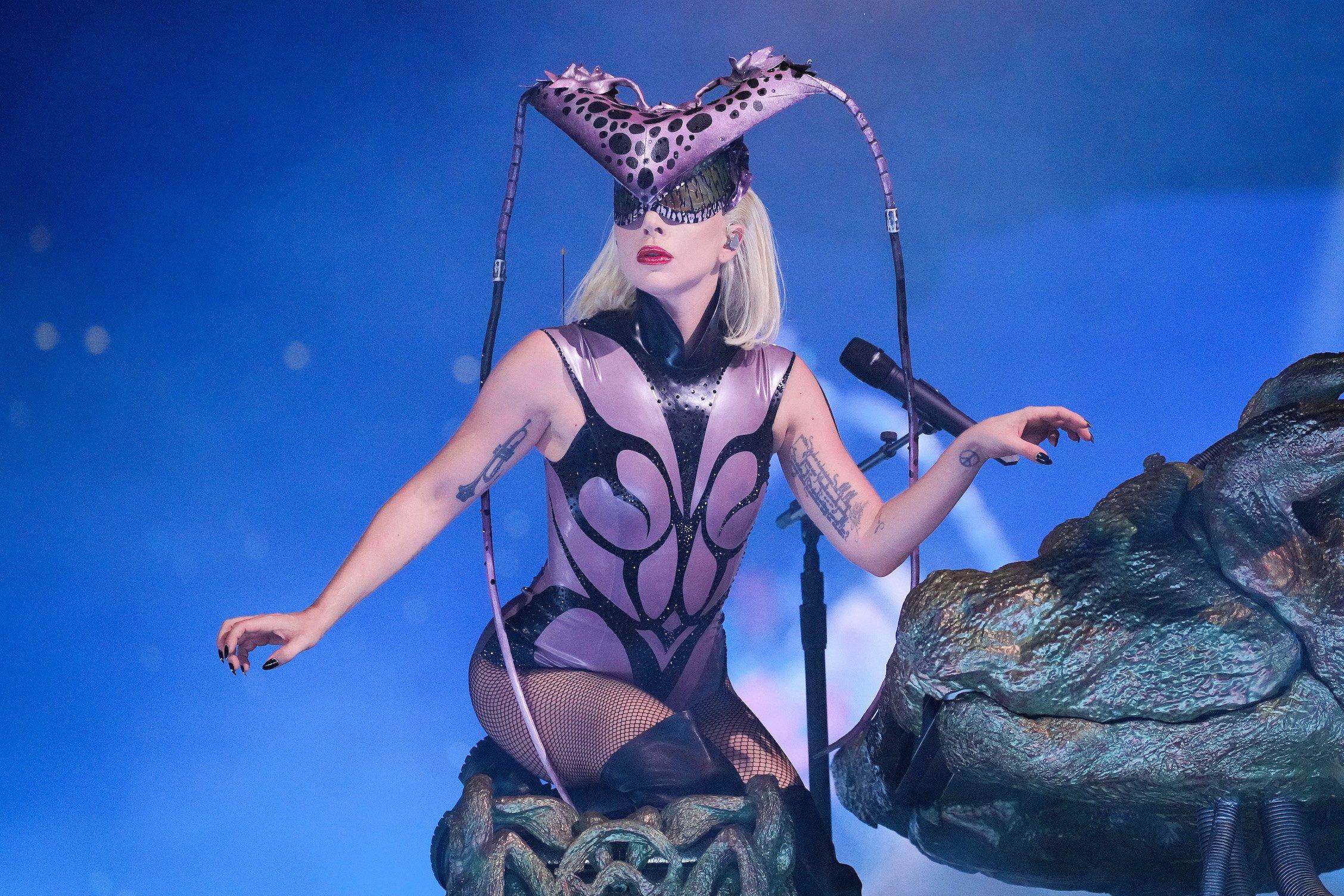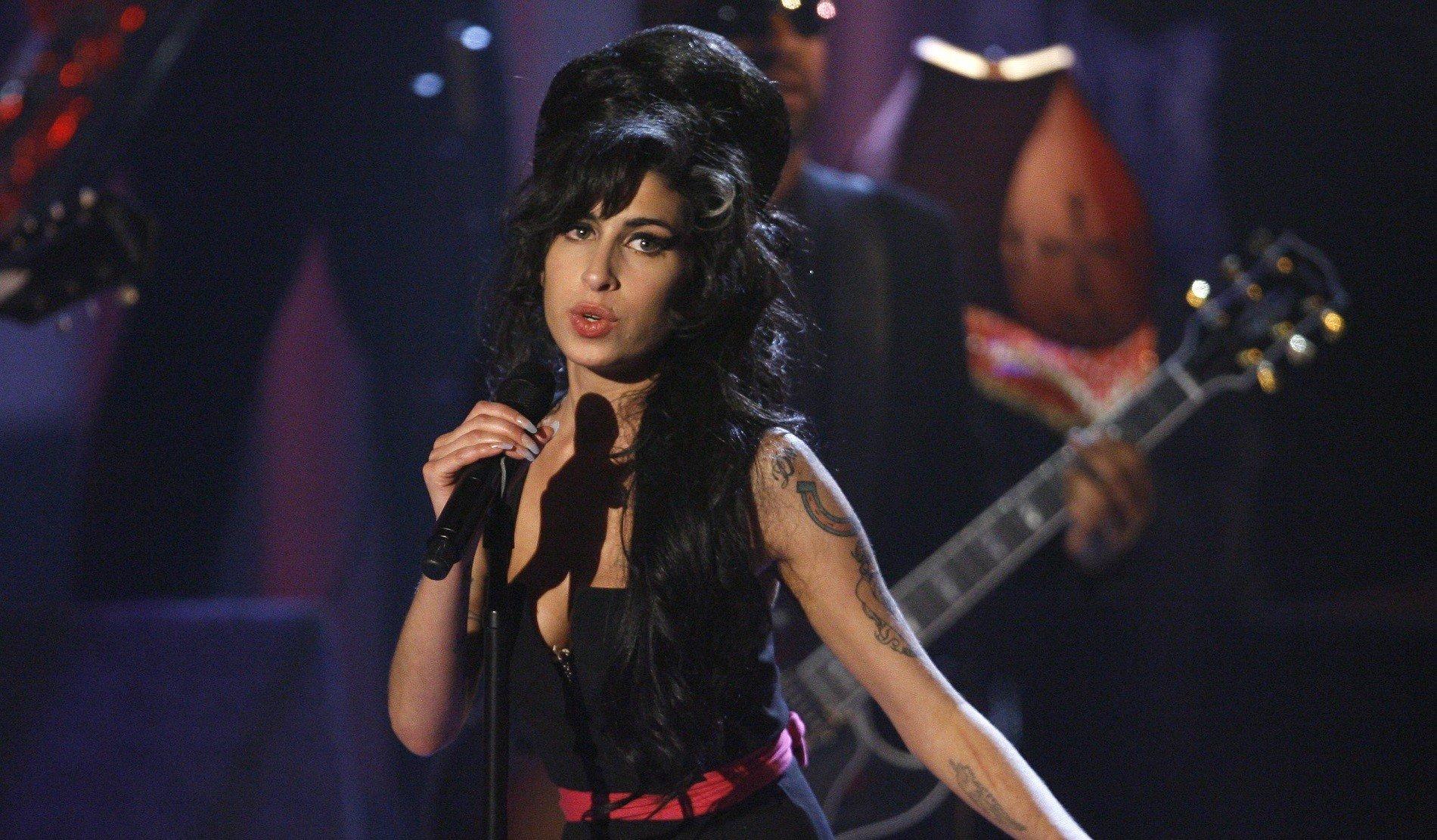Nearly two years after bringing her 2020 album Chromatica to life with a sold-out stadium tour, Lady Gaga is bringing The Chromatical Ball to your living room. GAGA CHROMATICA BALL, an HBO Original special that premieres May 25 exclusively on MAX, will take Little Monsters into the mesmerizing, colorful world the 13-time GRAMMY winner crafted with her sixth studio set.
The Chromatica Ball was a joyful cultural triumph as the world emerged from lockdown, hitting 20 stadiums across Europe, North America and Asia in the summer of 2022. While it was named after Chromatica and featured the majority of the dance-driven album's track list — including the smash Ariana Grande duet, "Rain On Me," and lead single "Stupid Love" — the tour was a celebration of the breadth of her acclaimed career as a whole, which has spanned decades, genres, styles, and entire industries.
GAGA CHROMATICA BALL documents Lady Gaga's sold-out September 2022 show at Dodger Stadium in Los Angeles, which was one of the biggest venues on the tour. Showcasing a stage inspired by brutalist architecture and a set list stretching from the pop star's 2008 debut album, The Fame, to her Top Gun: Maverick track, "Hold My Hand," the film will also take fans inside the raw passion Gaga brings to each and every live show.
In celebration of the concert film, GRAMMY.com revisits 15 of Gaga's most career-defining songs to date, from early hits like "Poker Face" to stunning deep cuts like Chromatica's "Free Woman."
"Just Dance" (feat. Colby O'Donis), The Fame (2008)
Lady Gaga burst onto the scene in 2008 with a fully realized point of view and pop star persona, but her debut single actually wasn't an immediate smash on the charts. Instead, "Just Dance" served as the sleeper hit that kick-started Gaga's legendary career, landing at the precipice of the Billboard Hot 100 after a 22-week climb from its initial entry at No. 76 to the nascent pop star her very first No. 1 hit.
A polished dance floor banger produced by RedOne and co-written with Akon, "Just Dance" perfectly crystallizes the dance-pop resurgence of the late 2000s that Gaga not only helped spearhead, but masterfully rode into the upper echelon of 21st century pop stardom. Notably, the song also earned Gaga the first GRAMMY nomination of her career for Best Dance Recording in 2009 — a full year before her debut album would announce itself as a major force at the 2010 ceremony.
"Poker Face," The Fame (2008)
If "Just Dance" set expectations sky high for the music Gaga had up her well-manicured sleeve, "Poker Face" majorly surpassed them — and subsequently, became one of the defining pop songs of the decade. With its relentless rhythm, sing-song "Po-po-po-poker face, po-po-poker face" refrain, and winkingly naughty lyrics ("'Cause I'm bluffin' with my muffin," anybody?), the song proved Gaga knew how to expertly construct an earworm while delivering a high-concept visual spectacle in spades.
"Poker Face" became the singer's second consecutive No. 1 single on the Hot 100, marking the first time a brand-new artist had accomplished the feat since Christina Aguilera's one-two punch of "Genie in a Bottle" and "What a Girl Wants" a full decade prior. By year's end, "Poker Face" had become top-selling single of 2009 across the globe, and the following year, it earned Gaga her first nods for both Song Of The Year and Record Of The Year at the 2010 GRAMMYs, with The Fame also being nominated for Album Of The Year.
Though the song and LP ultimately lost in the major categories, they respectively took home the golden gramophones for Best Dance Recording and Best Electronic Dance Album, officially making Gaga a GRAMMY-winning artist after less than two years in the industry.
"The Fame," The Fame (2008)
While it was never released as an official single, the title track off Gaga's 2008 debut album serves as something of an early thesis statement for the avant garde star who so confidently declared, "POP MUSIC WILL NEVER BE LOWBROW" as she burst from New York City's underground scene to the global stage.
Gaga lays bare her ambitions with brazen clarity on the punchy electronic track, as she gushes over her single-minded love for "runway models, Cadillacs and liquor bottles" and sings, "Give me something I wanna be/ Retro glamor, Hollywood, yes we live for the fame/ Doin' it for the fame/ 'Cause we wanna live the life of the rich and famous." Later on the song's bridge, the pop star vows, "Don't ask me how or why/ But I'm gonna make it happen this time," and in retrospect, there's no denying Gaga accomplished everything she set out to achieve at the start of her career.
"Bad Romance," The Fame Monster (2009)
The Fame heralded Gaga as the next big thing in pop music. But rather than spend a couple years fine-tuning her follow-up, the newly minted star decided to double down while the iron was red hot by reissuing the album as The Fame Monster, complete with eight new songs. And in doing so, she catapulted herself to superstar status with just five syllables: "Ra-ra-ah-ah-ahh."
If the Gaga of "Just Dance" and "Poker Face" was a flashy striver fighting her way to the center of the cultural zeitgeist, "Bad Romance" presented Gaga as a high-fashion pop queen ready to turn her coronation into a victory lap. Not only did "Bad Romance" score Gaga her fifth consecutive top 5 hit on the Billboard 200, it also won her the GRAMMYs for Female Pop Solo Performance and Music Video/Short Form in 2011. (The Fame Monster, meanwhile, took home the golden gramophone for Pop Vocal Album — the first of Gaga's four nominations and counting in the category.)
"Telephone" (featuring Beyoncé), The Fame Monster (2009)
"Hello, hello, baby, you called, I can't hear a thing…" On its face, "Telephone" may sound like a garden variety electro-pop bop, but Gaga turned the track into an unforgettable club banger of the highest order by recruiting the one and only Beyoncé. The two superstars play off one another with panache as they shrug off responsibility and incessant calls from home in favor of giving into the music.
The single's murderous, Jonas Åkerlund-directed visual remains one of the most iconic in Gaga's storied visual history. Fourteen years after Gaga and Honey B drove off in the Pussy Wagon with the promise to never come back, Little Monsters and the Beyhive are still clamoring for a follow-up. Need proof? Just look at the internet frenzy Queen Bey caused when she appeared driving a similarly hued taxi in a teaser for the album that became COWBOY CARTER earlier this year.
"Born This Way," Born This Way (2011)
Almost from the moment she emerged onto the national consciousness, Gaga was considered a gay icon in the making, proudly advocating for the queer community — and in turn, cultivating a passionate, devoted LGBTQ+ fan base who worshiped at the feet of Mother Monster. So, naturally, she used her 2010 sophomore album to gift the masses with the Pride anthem of a generation.
Drawing comparisons to Madonna's "Express Yourself," "Born This Way" became a defining hit of the 2010s and helped empower listeners from the clubs, to the streets, to the inside of the closet to embrace what makes them special and fearlessly declare, "Baby, I was born this way!" Additionally, the gay anthem holds the distinction of being the 1,000th No. 1 hit in the history of the Billboard Hot 100, as well as Gaga's first single to bow at the top of the chart upon its debut.
"Yoü And I," Born This Way (2011)
Though she would go on to explore the genre further in 2016's Joanne, Gaga pretty much perfected her interpretation of classic Americana with the country-rock stomp of "Yoü and I" in 2011. Released as the fourth single from Born This Way, the gutsy power ballad found the singer driving a muscle car right through the glitzy, electro-pop aesthetic of her past as she wailed, "This time I'm not leavin' without you" over a sample of Queen's "We Will Rock You" and an original electric guitar line by none other than Brian May himself.
The music video for "Yoü And I," meanwhile, was classically high-concept in the most Gaga of terms. It saw the star transform into a number of alter egos including Yüyi the mermaid and the snarling, chain-smoking Jo Calderone. Whether running through the Nebraska cornfields of the song's setting or being brought back to life a la bride of Frankenstein by future ex-fiancé Taylor Kinney, Gaga proved that she could make a visit to America's heartland as avant-garde as ever.
"Marry The Night," Born This Way (2011)
Among Born This Way's litany of hits, "Marry the Night" is widely regarded among Little Monsters as something of a cult favorite. Though it didn't ascend quite as high up the charts as preceding singles like "Judas" or "The Edge of Glory," the track's music video might just be the most autobiographical visual the New York City native has ever released.
As the fantastical clip opens on an unconscious Gaga lying prone in a hospital bed wearing "next season Calvin Klein" and custom Giuseppe Zanoti, the singer lays out her entire approach to her artistry. "When I look back on my life, it's not that I don't want to see things exactly as they happened, it's just that I prefer to remember them in an artistic way," she explained. "And truthfully, the lie of it all is much more honest because I invented it…
"It's sort of like my past is an unfinished painting," she continues. "And as the artist of that painting, I must fill in all the ugly holes and make it beautiful again. It's not that I've been dishonest; it's just that I loathe reality." Gaga's rejection of the ordinary in favor of artistic reinterpretation has given fans not only the creative explosion of "Marry the Night," but the entirety of the pop star's avant-garde oeuvre.
"The Lady Is a Tramp" (with Tony Bennett), Duets II (2011)
Smack dab in the middle of Gaga's Born This Way era, Tony Bennett invited Gaga to duet on his 2011 album, Duets II. The pair's charming, spunky rendition of the Rodgers and Hart classic "The Lady is a Tramp" not only opened the album, but it showcased an irrepressible chemistry between the two stars that led to two more collaborative full-length albums, 2014's Cheek to Cheek and 2021's Love For Sale — both of which won GRAMMYs for Best Traditional Pop Vocal Album.
The song ultimately became something of a cheeky hallmark to how much Gaga and Bennett adored one another; even after they'd released an album full of jazz standards like Cole Porter's "Anything Goes" and Irving Berlin's "Cheek to Cheek," the young pop ingénue chose to sing "The Lady Is a Tramp" for Bennett's 90th birthday celebration at Radio City Music Hall, dedicating it to her friend as he beamed from the front row.
The pair's sweet friendship would continue on all the way until Bennett's death in 2023 following a years-long battle with Alzheimer's disease. In a heartfelt social media tribute, Gaga shared the impact of Bennett's friendship: "Sure he taught me about music, about showbiz life, but he also showed me how to keep my spirits high and my head screwed on straight."
"Applause," ARTPOP (2013)
She lives for the applause! For the lead single for her 2014 album ARTPOP, Gaga shined a spotlight back on the parasocial relationship and adoration that comes with fame. This time, though, the pop star demands listener participation rather than simple voyeurism as she belts, "Give me that thing that I love/ Put your hands up, make 'em touch!"
In the song, Gaga also shares the complex philosophy behind the album's title ("Pop culture was in art, now art's in pop culture in me.") But between shouting out famed sculpturist Jeffrey Koons (whom she commissioned to create the iconic ARTPOP cover art) and referencing everything from Botticelli's The Birth of Venus to the pop iconography of Andy Warhol in the surrealist music video, Gaga's message was deceptively simple: She lives for the A-P-P-L-A-U-S-E, baby.
"Aura," ARTPOP (2013)
When it came time to present the highbrow themes of ARTPOP to the masses, Gaga chose to open the 2013 iTunes Festival with "Aura," a frenetic exploration of fame, celebrity, suppression and identity built over a skittering sonic palette inspired in equal parts by Middle Eastern music, spaghetti Westerns and mariachi.
Though she initially faced some backlash over accusations that she had appropriated the wearing of a Muslim burqa in the song's lyrics, "Aura" effectively set the stage for ARTPOP as a piece of sophisticated performance art unlike anything Gaga had created before — all while promising fans a glimpse "behind the curtain" at the girl underneath the camp and artistry. And though ARTPOP may have been more than a bit misunderstood at the time of its release, it arguably remains the boldest and bravest album in Gaga's manifold discography.
"Joanne," Joanne (2016)
Gaga found inspiration for her fifth studio album from the life and death of her late aunt (and namesake), Joanne Stefani Germanotta. The singer never met her relative, but Joanne's spirit was imbued throughout the album, from its homespun lyricism to its stripped-back sonic palette that found the singer exploring the sounds of country, soft rock and Americana.
Nowhere on the record is Gaga's profound connection to her aunt more evident than the title track, which she recorded two different versions of and released as the album's third and final single. "Take my hand, stay Joanne/ Heaven's not ready for you/ Every part of my aching heart/ Needs you more than the angels do," she sings softly over a spare piano line on "Joanne (Where Do You Think You're Goin'?)."
With its roots in her family tree, the song clearly holds a special place in Gaga's heart — especially considering she chose to mix it with "Million Reasons" for her performance at the 2018 GRAMMYs. (A full year later, she took home the GRAMMY for Best Pop Solo Performance in 2019 for the acoustic piano version.)
"Shallow" (with Bradley Cooper), A Star Is Born (2018)
"I can see myself in the movies/ With my picture in city lights," Gaga memorably sang in "The Fame." And a decade later, she manifested her dream into reality with a starring role in the 2018 remake of A Star Is Born.
Opposite Bradley Cooper, the singer proved she had plenty of star quality on the silver screen on top of her status as a pop supernova. The movie musical's soundtrack was also dominated by Gaga's vulnerability and vocal abilities, fully giving herself over to the story of a star-crossed love that ends in superstardom and tragedy — particularly on the emotional keystone that is "Shallow." In fact, by the time she lets out her famous, guttural wail in the song's emotional bridge, it's easy to forget that "Shallow" is, in fact, a duet rather than a dazzling showcase of Gaga's chops.
On top of being an essential touchstone in Gaga's canon, "Shallow" is also memorable for being the song that turned Mother Monster into an Oscar winner after she, co-writer Mark Ronson and the rest of their collaborators took home the trophy for Best Original Song at the 2019 Academy Awards. (The song also won a GRAMMY for Best Pop/Duo Group Performance that year.)
"I've worked hard for a long time," Gaga said through tears while accepting her Oscar. "And it's not about winning, but what it's about is not giving up. If you have a dream, fight for it. There's a discipline for passion, and it's not about how many times you get rejected or you fall down or you're beaten up. It's about how many times you stand up and are brave and you keep on going."
"Rain On Me" (with Ariana Grande), Chromatica (2020)
Gaga's Chromatica era began with "Stupid Love" and its colorful, Power Rangers-chic video, but the star hit peak pop excellence by joining forces with Ariana Grande on the album's second single "Rain on Me."
"I'd rather be dry but at least I'm alive/ Rain on me, rain, rain," the two superstars harmonized on the house-fueled disco fantasia's upbeat refrain, before letting the beat drop and giving in to the impulse to dance it out. Released in the early days of the coronavirus pandemic, the track provided hope, joy and a message of hard-fought resilience at a scary, unpredictable and unprecedented time when it felt like the world was ending as we knew it.
The following year, Gaga and Grande won the GRAMMY for Best Pop/Duo Group Performance at the 2011 ceremony, becoming the first female collaborators to take home the award in GRAMMYs history.
"Free Woman," Chromatica (2020)
"Free Woman" was a bit overlooked when it was released as Chromatica's fourth and final single in the spring of 2021, but the narrative Gaga shares on the jubilant track is central to her personal history and experiences in the music industry. Over a thumping Eurodance-leaning beat, she recounts the PTSD she suffered from after being sexually assaulted by an unnamed producer early in her career.
Gaga also offers a rallying cry for her beloved LGBTQ+ fan base on the song, particularly those in the trans community, as she belts, "This is my dance floor I fought for/ Ain't hard, that's what I'm livin' for…We own the downtown, hear our sound." Ultimately, that empowering lyric is a notion that encapsulates the overarching theme of Gaga's career thus far — one that fans around the world can revel in again and again with GAGA CHROMATICA BALL.
Explore The World Of Lady Gaga











